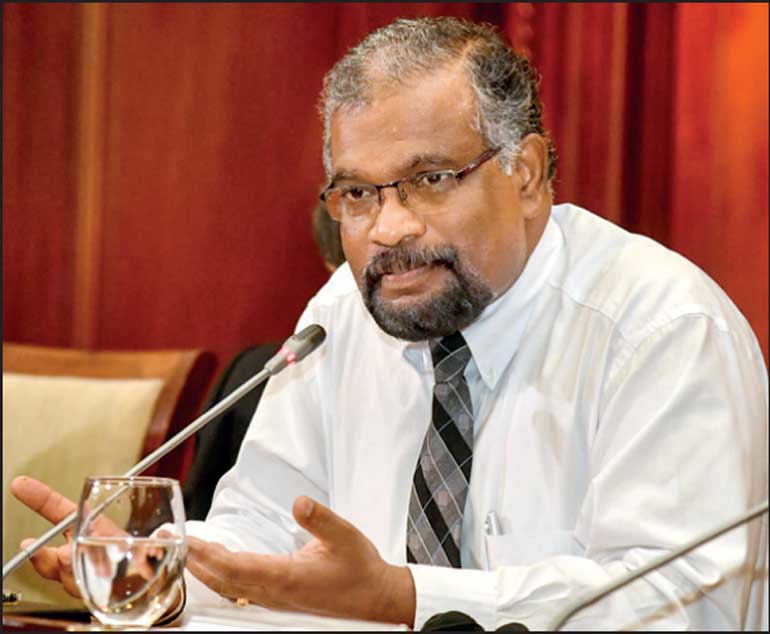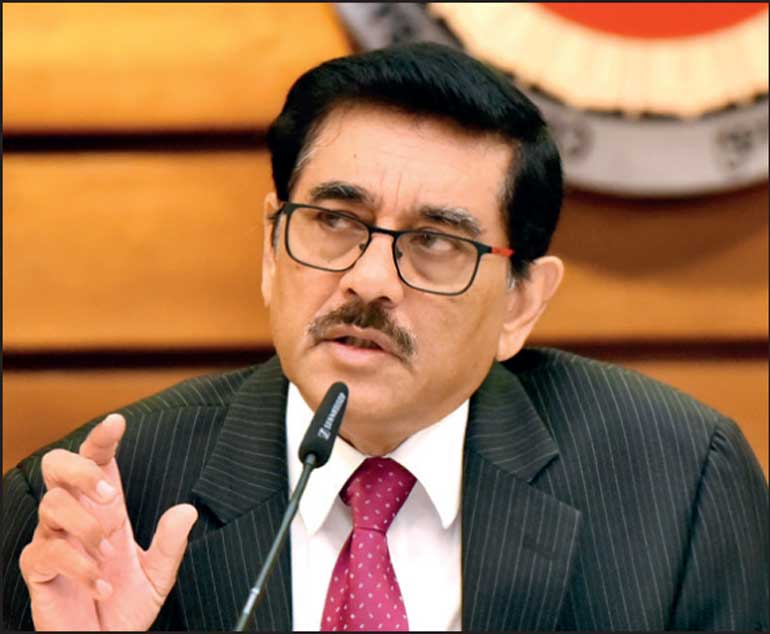SL announces Dollar ISB Exchange move
Friday, 29 March 2024 00:00 – – 35

Treasury Secretary
Mahinda Siriwardena

CBSL Governor
Dr. Nandalal Weerasinghe
- Issues notice for RfPs to appoint as Dealer/Manager to exchange SL’s existing ISBs denominated in US$ for new ISBs in same currency
- Move seen as key step towards finalising restructuring of a substantial part of external commercial debt
- Value of outstanding ISBs is $12.1 b out of $ 22 b worth external debt identified for restructuring
The Treasury has announced a possible US dollar-denominated International Sovereign Bonds (ISBs) exchange offer issuing notice for Request for Proposals (RfPs) from those interested to be the dealer cum manager.
The Ministry of Finance, Economic Stabilisation and National Policies described the initiative as «Potential International Sovereign Bonds Exchange Offer» by the Government of Sri Lanka.
It said in the context of the restructuring of ISBs, the Government has announced it is working towards launching an invitation to exchange its existing ISBs denominated in United States Dollars for new ISBs in the same currency.
The value of outstanding ISBs is $ 12.1 billion out of $ 22 billion worth external debt identified for restructuring.
The Government has invited banks to submit proposals for consideration to be appointed as a Dealer Manager for the proposed Exchange Offer. Bidders would work alongside Sri Lanka’s appointed financial and legal advisors Lazard Frères SAS and Clifford Chance LLP.
The move comes as Treasury and Central Bank officials are in London to negotiate with commercial creditors including ISB holders.
The scope of work includes performing services that are customary and consistent with the role typically undertaken by a Dealer Manager in a sovereign debt exchange offer.
The bidders are to provide a customised scope of work for their role as Dealer Manager. It includes preparation of the Exchange Offer, Coordinating with the Information, Tabulation and Exchange Agent to ensure maximum identification/pre-screening of ISBs holders; Coordinating with all involved third parties (including the Trustee, relevant stock exchanges and clearing systems, etc.) to assist GOSL’s financial and legal advisors in respect of the Exchange Offer Memorandum; Assisting GOSL’s financial and legal advisors on the design of the Exchange Offer strategy; and Monitoring market conditions prior to the Exchange Offer.
Bidders are also expected to execute the ISBs Exchange Offer transaction, managing the Exchange Offer, in accordance with financial and legal parameters provided by GOSL’s financial and legal advisors, coordinate the exchange logistics with relevant third parties (including the Trustee, Information, tabulate and Exchange Agent, stock exchanges, clearing systems, etc.); provide regular updates to GOSL and it financial and legal advisors on bondholder participation during the Exchange Offer period.
Additional scope is bondholder engagement whereby support the Government in marketing of the Exchange Offer and responding to bondholder inquiries regarding the exchange process and offer details where necessary, in coordination with the Information, Tabulation and Exchange Agent(s); Soliciting the participation of holders of ISBs to be exchanged pursuant to the Exchange Offer and Gathering informal market feedback and discussing the same with Authorities and GOSL›s financial and legal advisors.
Bidders will be selected on the strength of their technical and financial proposals as well as relevant proven experience in the role of Dealer Manager or similar in sovereign bond exchange Offers.
A Bloomberg report described the proposal as a step that would help Sri Lanka secure more international financial aid. “This does signal a Sri Lanka deal might be getting close,” Bloomberg quoted Charlie Robertson, head of macro strategy at FIM Partners as saying. It said Sovereign distressed debt exchanges have been on the rise since the pandemic, as nascent economies struggle with spiralling interest rates, according to S&P Global Ratings. They typically involve only local-currency debt and not overseas borrowings. Argentina has been heavily reliant on such swaps to manage its finances after it defaulted on its international bonds in 2020.






